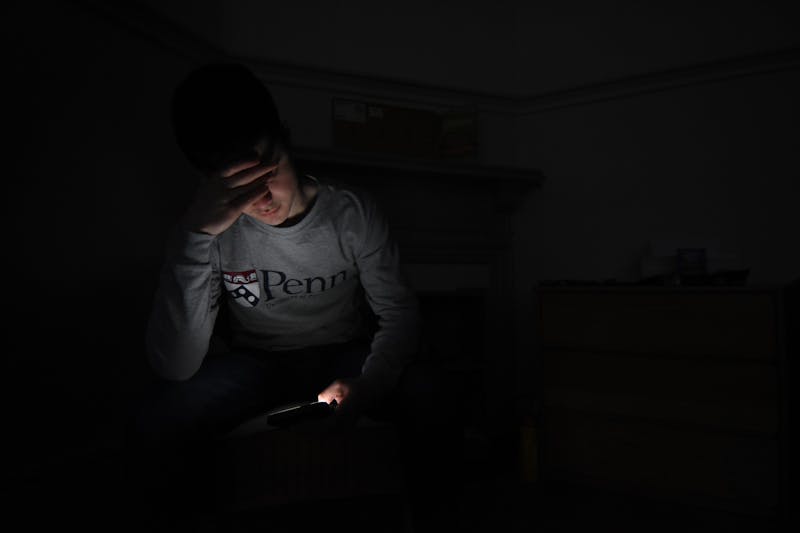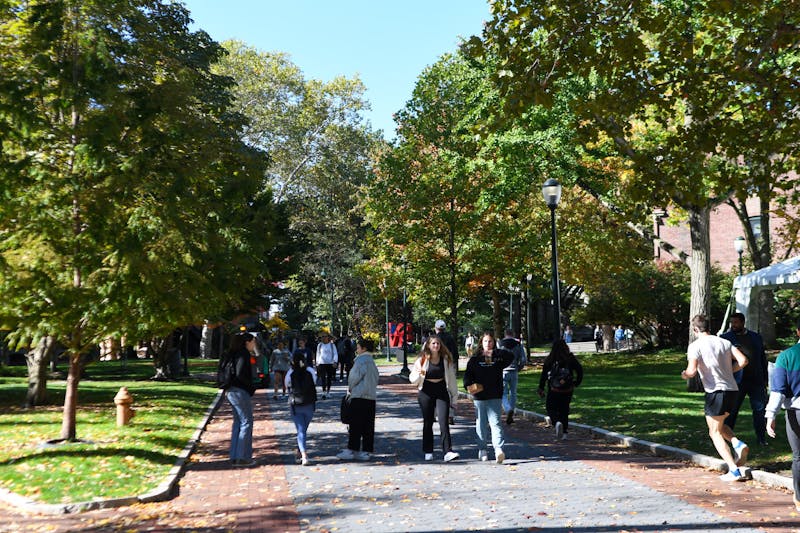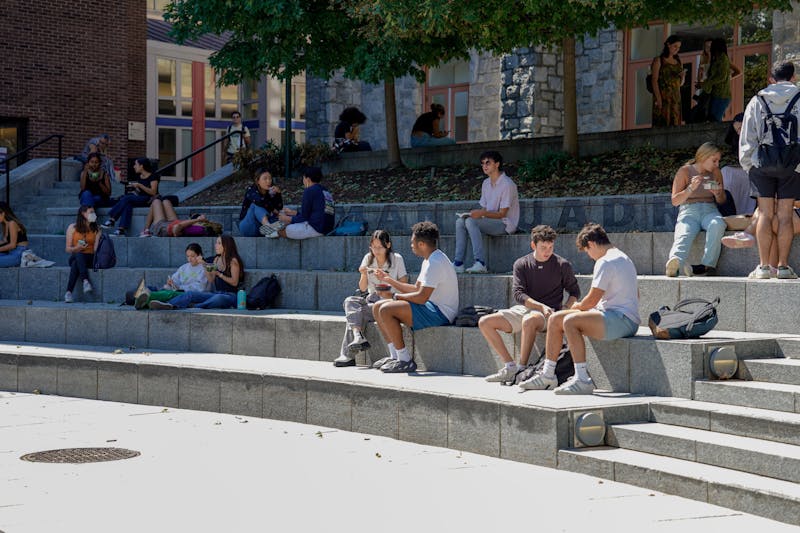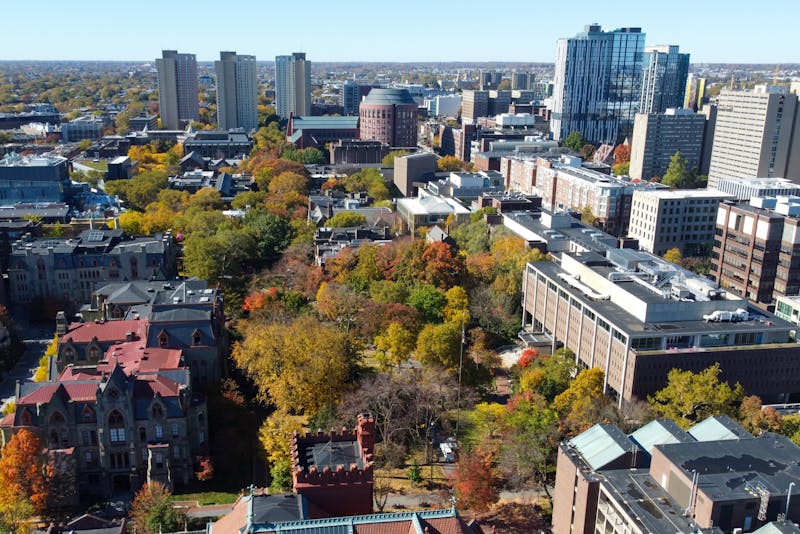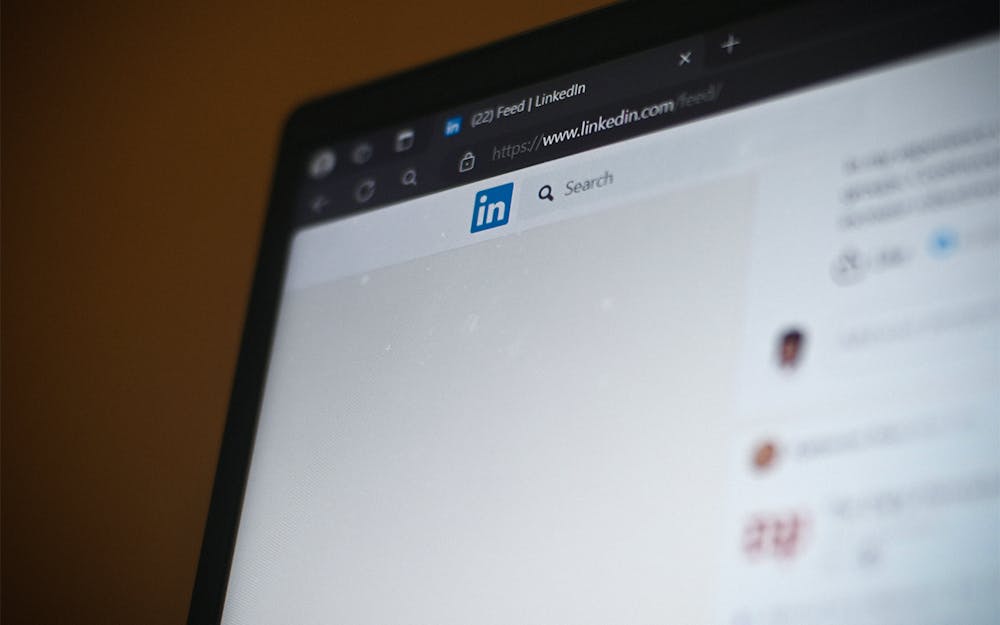
Columnist Eliza Carroll asks Penn students to reflect on their relationship to LinkedIn.
Credit: Nathaniel BabittsNever in my life have I received as many LinkedIn notifications as I have this summer. Everyone I’ve ever met wants to connect: childhood frenemies, classmates I’ve never spoken to, niche family friends — likely in pursuit of the coveted 500+ connections — all piling up in my inbox. As college students, we’ve inevitably reached the point in our lives where the looming thought of careers is becoming more pressing; therefore, an increase in LinkedIn use is perfectly logical.
According to LinkedIn itself, the platform is meant to help users “find the right job or internship, connect and strengthen professional relationships, and learn the skills you need to succeed in your career” — all of which are important. However, I would bet that for many of us, the large majority of the connections we’ve accumulated aren’t with people we’ve met in a work setting or mentors that we hope will keep track of our progress as we look for postgraduate jobs. Instead, they’re our friends and peers, who are going through the same process we are. This has led me to ponder whether the misalignment of our intended audience (mentors/employers/recruiters) and our true audience (peers) on LinkedIn is problematic.
This is not to say that connecting with peers is a bad thing; it makes perfect sense, and — in the future — those relationships will be invaluable. But right now, I think it makes sense to cater either to friends and peers on a media platform like LinkedIn or to mentors and professionals, but not both. Ultimately, I think that this discrepancy between the content that students are publishing on LinkedIn and their audience plays into both the preprofessional culture at Penn and general anxiety over the inevitable question: “What do we want to do when we grow up?”
In the years since Generation X went to college, had internships, and, for many, entered the corporate world, there has been a significant change in the timeline for finding jobs. Specifically, the highly coveted worlds of finance and consulting, which operate on a highly scheduled recruiting cycle, have such a specific chronology for finding internships and jobs that it leaves very little room for exploration. LinkedIn highlights this strict recruiting chronology, making it easy to compare oneself to peers and simultaneously reinforcing the idea that if you aren’t hitting the benchmarks of banking recruiting and announcing your new amazing internship for the summer of 2026, you’re behind schedule.
Just as platforms like Instagram and Snapchat are often criticized for fostering comparison through curated, perfected life snapshots, LinkedIn has a similar effect. In addition to its purpose as a platform for career advancement and self advocacy, it has become a breeding ground for comparison. It’s a place where users feed into a competitive culture and where it has been deemed advantageous for users to self promote to the extreme, under the guise of professionalism.
Granted, I don't think LinkedIn is inherently bad, but I do believe that this new nature of LinkedIn perpetuates the preprofessionalism at Penn and of our generation. Although there is no single right way to achieve success, the noise of LinkedIn makes it harder to remember this.
This piece may reveal my lack of certainty around my future career and how the nonstop nature of LinkedIn notifications this summer has affected me, making me question if I am wrong to not pursue investment banking, like everyone else. I don’t have a pithy ending, because boycotting LinkedIn is not really the answer or the issue. But perhaps this is just a reminder for myself and for anyone else who needs it that there is no single equation that will lead to career success, and, rather, diversity of aspiration will remain important even when every LinkedIn announcement seems like it could have been copied and pasted from the last.
ELIZA CARROLL is a rising College sophomore studying political science and art history from Greenwich, Conn. Her email is elizakc@sas.upenn.edu.
The Daily Pennsylvanian is an independent, student-run newspaper. Please consider making a donation to support the coverage that shapes the University. Your generosity ensures a future of strong journalism at Penn.
Donate







